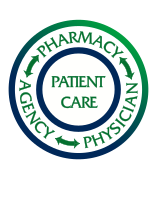How to Spot a Nutrient Deficiency
When patients are treated for medical disorders, a potentially dangerous condition is a deficiency in nutrients. A nutrient deficiency could put a patient in a very compromised condition. Whether it’s inability to fight off a virus, broken bones, or worse, it is very important to learn how to spot a nutrient deficiency.

Causes of Nutrient Depletion
There can be many causes of the depletion of nutrients. Some of these may include:
- Aging
As patients age, their bodies become less effective when it comes to absorption and the utilization of nutrients. Even Vitamin D which is synthesized by the body after sun exposure, can be limited in older people. The body is less able to synthesize that nutrient as the body ages. - Poor Diet
When a patient is consuming a diet that lacks essential nutrients, a depletion of vitamins and minerals can occur over time. One culprit that is responsible for poor diet is the consumption of empty calories. Consuming food lacking nutrients may fulfill hunger but not provide essential nutrients for the body. - Disorders of the Digestive Tract
Patients who have digestive disorders such as IBS, celiac, or colitis may have an issue absorbing nutrients. Even if they are consuming the right foods, their bodies can’t process the nutrients and use them to help the body. - Alcohol and Drug Misuse
The abuse of alcohol alters the way bodies absorb nutrients. This can cause a systemic depletion of nutrients due to malabsorption. The misuse of drugs can cause similar issues. - Environmental Factors
Toxins and pollutants in the environment can cause nutrient deficiencies by creating issues with absorption in some individuals. - Genetic Disorders
Certain genetic disorders keep individuals from being able to absorb nutrients as they should. This can cause nutrient deficiencies.
Signs of Nutrient Deficiency
- Immune Function Impairment
Many nutrients play a vital role in the support of the immune system. Vitamins like A, C, D, and zinc are essential for their role in supporting this system. A patient with deficiencies in any of these nutrients is extremely susceptible to illness and infection. - Poor Cognitive Function
One side effect of nutrient deficiency is the loss or impairment of some cognitive functions. Particularly the vitamins in the B vitamin family, such as B6, B12, and folate are crucial for functions such as memory, concentration, and the prevention of neurological disorders such as dementia and other cognitive disorders. - Bone and Muscle Weakness
Calcium, vitamin D, and magnesium deficiency can lead to bone and muscle issues. An ongoing deficiency in any of these nutrients could lead to bone and muscle weakness, fractures, and/or osteoporosis. - Higher Risk of Chronic Illness
Certain chronic illnesses, such as cardiovascular disease, neurodegenerative disorders, and even some cancers have been linked to nutrient deficiencies. Adequate nutrition is essential to avoid these types of illnesses. - Vision Issues
A deficiency of Vitamin A is a major cause of blindness all over the world. This nutrient and other nutrients are very important to eye health and can help prevent certain eye diseases and disorders. - Issues with Wound Healing
Deficiencies in zinc, Vitamin C, and protein are crucial when it comes to wound healing. Particularly considering that wound healing slows with age, it is imperative that patients maintain levels of these nutrients that will promote wound healing. - Hormonal Imbalance
A disruption in hormonal balance can be caused by deficiencies in Vitamin D, Vitamin E, and many of the B vitamins. Hormonal imbalance can cause mood swings, female cycle irregularity, and other issues with bodily functions. - Low Energy
Deficiencies in some of the B vitamins can cause issues with low energy. Without these nutrients, the production of energy in the body can significantly decrease resulting in fatigue, low stamina, and weakness.
Any patient exhibiting any of these symptoms should be examined for nutrient deficiencies as soon as possible.
West Tennessee Pharmaceutical Care
When looking for the best-personalized pharmaceutical care that will provide full support to your assisted living facility, look no further than West TN Pharmaceutical Care. We are a closed pharmacy that caters directly to the needs of assisted living and/or supported living facilities. For more information about our pharmacy or the services we provide, contact us via our website, or call us at 731-595-0487.



